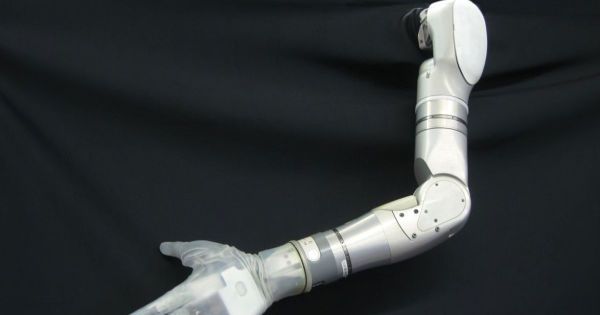DARPA promised prosthetic limbs that produce realistic sensations, and it’s making good on its word. The agency’s researchers have successfully tested an artificial hand that gave a man a “near-natural” level of touch. The patient could tell when scientists were pressing against specific fingers, even when they tried to ‘trick’ the man by touching two digits at once. The key was to augment the thought-controlled hand with a set of pressure-sensitive torque motors wired directly to the brain — any time the hand touched something, it sent electrical signals that felt much like flesh-and-bone contact.
There’s still a lot of work left to go before this hardware is truly realistic, of course. The sensors don’t cover the entire hand, and they don’t account for temperature or other factors you’ll likely worry about when grabbing objects. Still, this should represent a big step forward. Provided the technology takes off, both amputees and paralysis victims could regain some of the tactility they once had.
